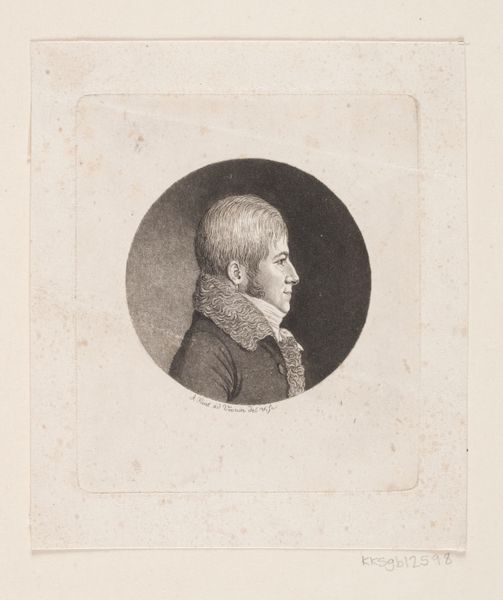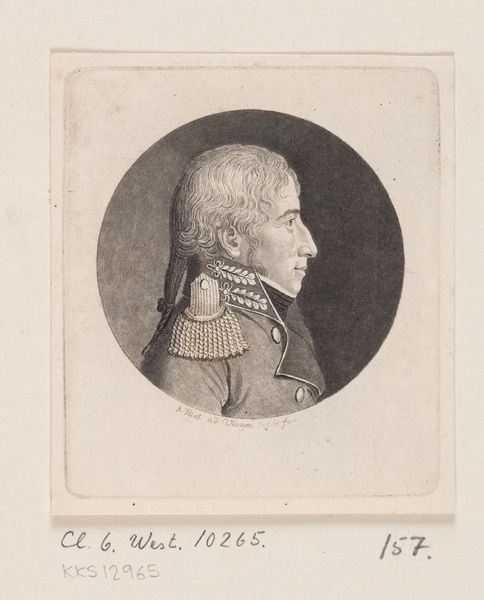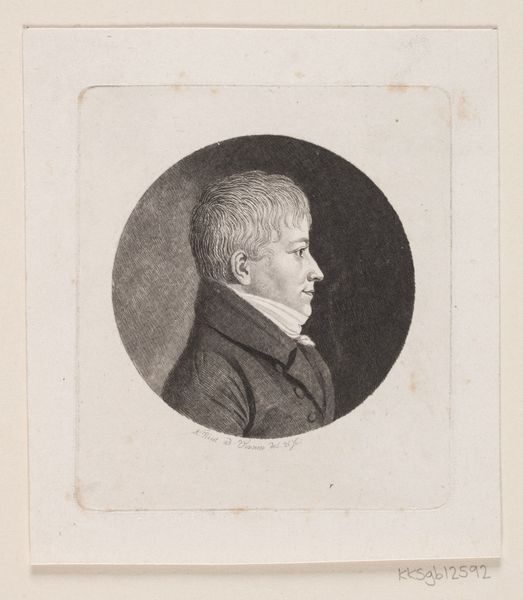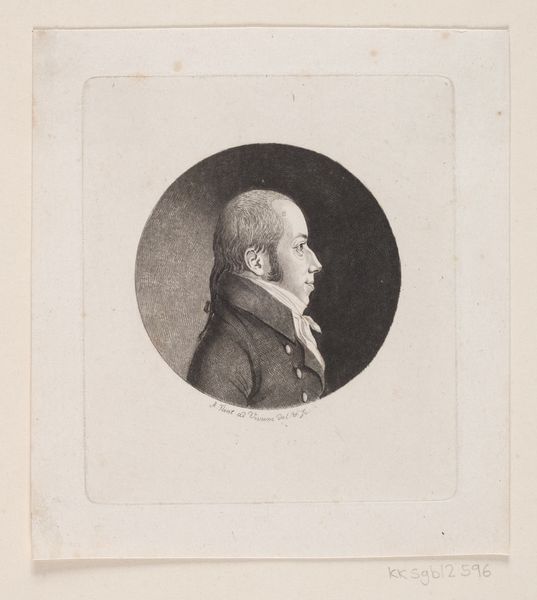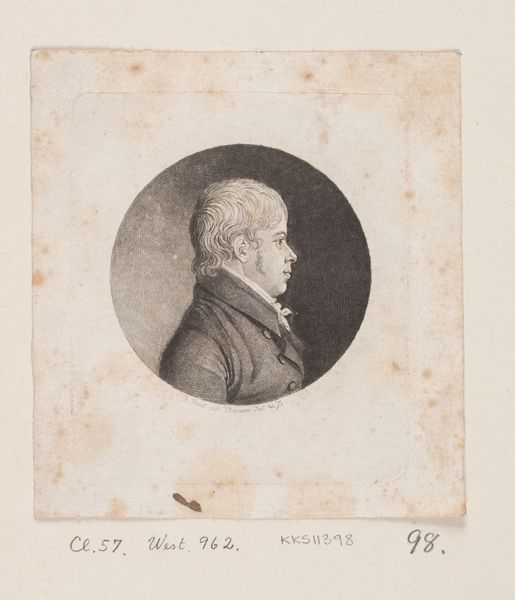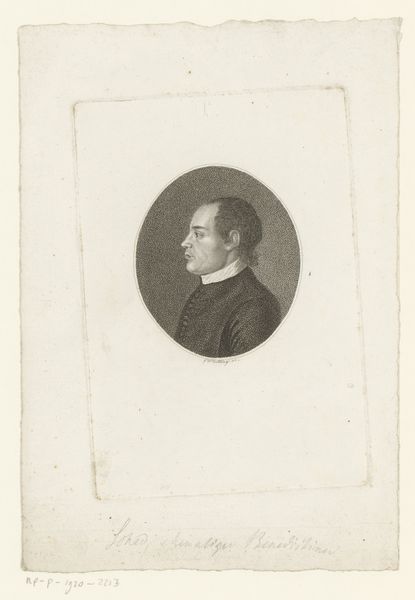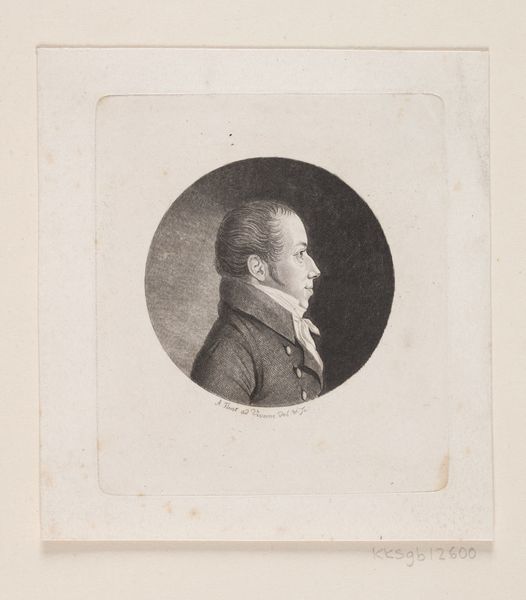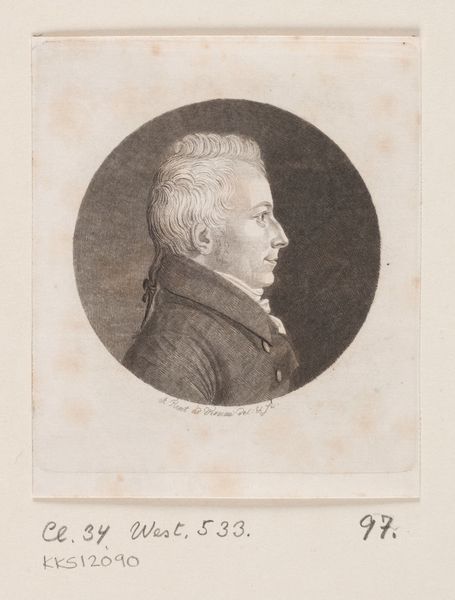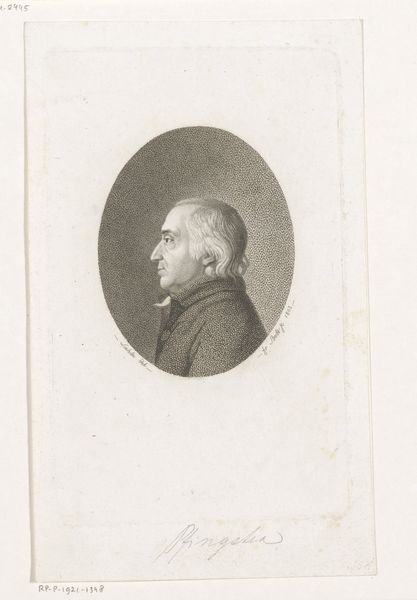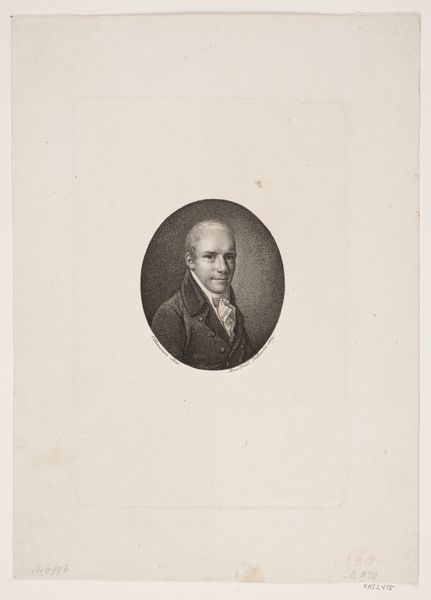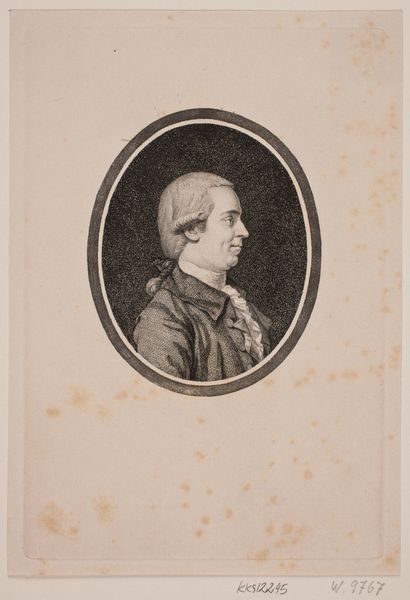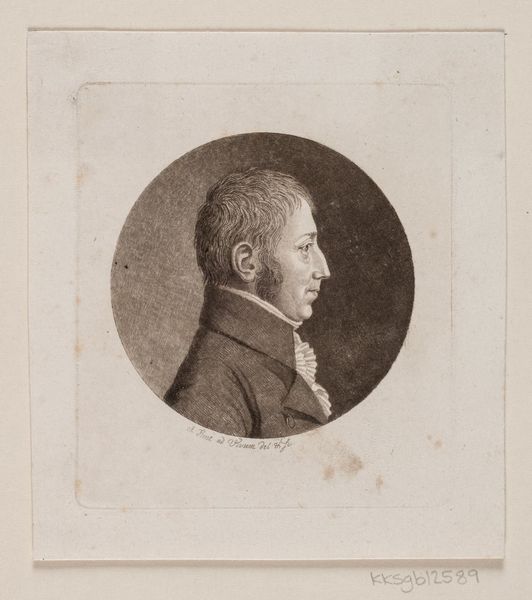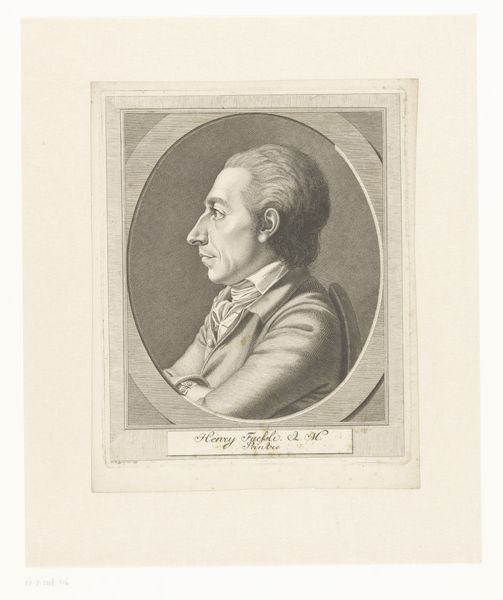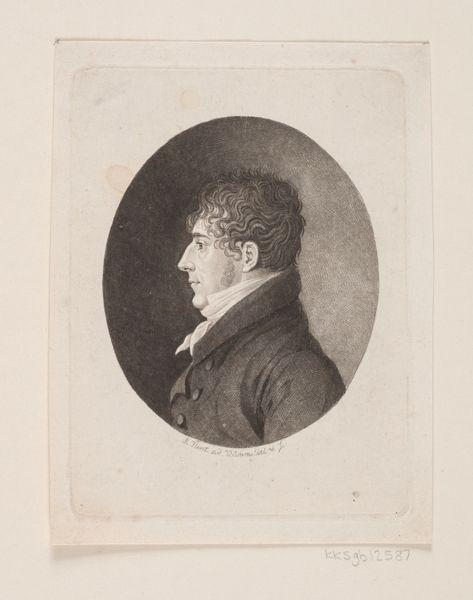
print, engraving
#
portrait
# print
#
portrait drawing
#
engraving
Dimensions: 60 mm (None) (billedmaal), 90 mm (height) x 82 mm (width) (plademaal)
This engraving of an unknown man was made by Andreas Flint, likely in the early 19th century. It's made from a metal plate, carefully incised with lines to create the portrait. Engraving is an intaglio process, meaning the image is cut into the surface. The plate is inked, then wiped clean, leaving ink only in the incised lines. When paper is pressed against the plate, the image is transferred. The fine lines and subtle shading show the engraver's skill, with the subject's likeness achieved through labor-intensive mark-making, each varying in depth and width. The proliferation of prints in this era, often portraits, reflects a growing middle class eager to participate in cultural trends, and portraits like this one were relatively affordable ways for individuals to assert their status. Consider the labor and skill involved in creating such a detailed image, and the broader social context of its production, when thinking about the full meaning of this portrait.
Comments
No comments
Be the first to comment and join the conversation on the ultimate creative platform.
